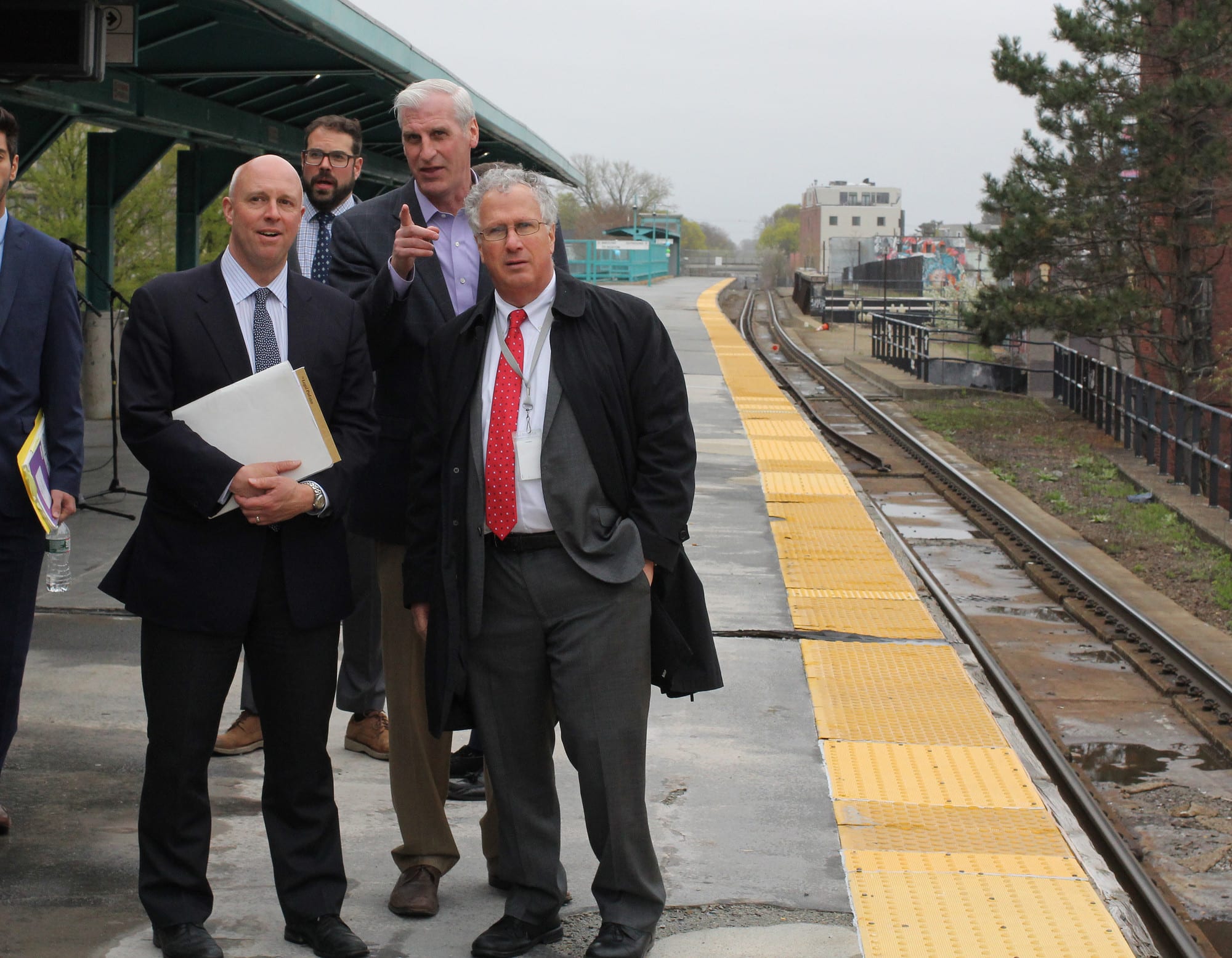Lynn Mayor Thomas M. McGee joined a virtual forum Monday afternoon to discuss the state’s current challenges, as people transition from staying home to utilizing public and private transportation again.
McGee, former state Senate Transportation Committee co-chair, was joined in the transportation webinar by former state Sen. Steven Baddour and state Rep. William Straus, who have also co-chaired the Transportation Committee for the Senate and House, respectively.
All three experts acknowledged how the pandemic has affected public transportation and discussed the most beneficial ways to utilize federal funding to increase safety and accessibility for all modes of transportation.
McGee said that with the construction of the new apartment buildings in the city of Lynn, transportation will need to be adjusted as hundreds of new residents move in. He noted that the key piece to ensuring the success of that is to utilize any federal funding to make transportation easier, more accessible and safer for the community.
“We can work with our federal partners to see the kind of investment on infrastructure and roads, bridges and transit that this country needs to really be able to grow our economy,” he said.
McGee said that the city of Lynn has received $200 million in federal funding to assist with that issue.
Straus agreed, saying that “those infrastructure expenditures should be necessary items, such as roads or bridges.”
In regards to supporting all means of transportation, McGee said that Lynn has been taking part in a pilot project for creating safer biking opportunities throughout the city. The city has implemented bike lanes through lining the streets, which has ultimately reduced vehicular speed in those areas and created a safer environment for bikers.
“(We are) putting a plan in place that allows us to start to move towards a broader regional vision that really does include all modes of transportation, including bike access,” said McGee.
Baddour said that the Commonwealth currently has a unique opportunity to transform the delivery of transportation, given the effects of the pandemic. He said that the state needs to come up with creative ways to open up congestion points, as people begin returning to work and commuting again. He also acknowledged that public transportation should be a priority, but all modes of transportation should be looked at.
“I think 2021 needs to be a deep breath,” he said. “There are certain issues that we absolutely need to stay on top of and continue to invest in, but at the same time, we don’t know what our transportation delivery system is going to look like at the end of the year.”
McGee also discussed completely electrifying local train systems as a first step toward starting to show an opportunity that will help decrease global warming. He highlighted the negative effects of diesel trains and buses, saying that some people are forced to ride diesel trains, or have them going in and out of their neighborhoods, and the pollution that comes from those vehicles is a health hazard.
“There is a real opportunity in the current capital investment plan over the next four years to get that going and start to show that this really is the direction that we need to go,” he said.
“It all plays into the climate change legislation that was just passed, but more importantly what we need to do related to climate change.”
He noted that the diesel trains going through Salem and Beverly to Lynn, with the buses in gridlock on the roadways, isn’t really a system that’s working right now and said that it is time to take on those challenges.
In regards to equity, Straus said that people rely on cars, so transportation improvements have to recognize different ways in which transportation systems are accessed.
McGee said the lack of affordable and frequent service and congestion in Lynn doesn’t make it easy to get around, noting that the effects of COVID-19 have had a devastating impact on equity.
“Most riders (on public transport) are low-income riders trying to get to work that don’t have any other access to their jobs,” he said. “The equity, and making a system that works and that’s safe, frequent, affordable and clean is something that really needs to be a goal because it really impacts so many communities in a negative way.”
He said that making sure equity is addressed in the city makes it a better place for everyone.
Straus said that it remains to be seen whether the transit system will see a full return of riders, to the point of where it was before the pandemic.
“We are going to see an emphasis in terms of other alternative modes of transportation methods,” he said. “We are going to see an increase, in terms of network transportation, of Uber and Lyft.”
He said that people have to be cautious of the transportation means that have been present in the past few months, acknowledging that there has been an increase in bicycle riders, but that may be just part of the transition back to whatever the recovery looks like from an economic standpoint.
Baddour said that with that slow return in transportation, communities need to continue to better educate drivers to drive safely as the pandemic comes to an end.
McGee agreed, saying, “We need to make sure the roadways are safe for everyone.”

